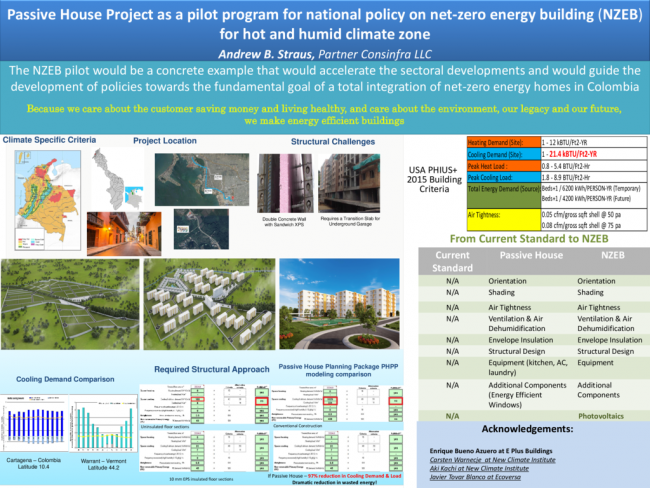In tropical countries, hot and humid climate present different challenges than those the Passive House standard has dealt with so far in heating dominated climates. These challenges, in addition to coping with local building practices for affordability are why the project has been chosen as a pilot program for defining national policy and constructions standards for NZEB. The development is a multifamily suburban village, 4.5 miles from the Caribbean city of Cartagena where the temperature at 85F db and the RH at 85% are constant throughout the year. The building practices do not consider either envelope insulation nor air-sealing of the standard reinforced concrete structures.
Residential buildings consume one fifth of the total energy used in Colombia and are the main end users of energy, after transportation and industry. The Colombian government has been subsidizing the basic energy needs of the lower socio-economic groups in the form of subsidies. These subsidies are partially covered by higher socio-economic groups as well as by commercial users and any shortfall is covered by the Colombian government. The subsidized users represent 88% of the total subscribers, and they represented 40% of the total area under construction.
In Colombia, a NZEB pilot program can help show practices that could later be replicated. A NZEB has the potential to reduce energy bills and subsidies paid by the population and the government. In this way, the implementation of NZEB would contribute to the alleviation of energy poverty, improving health and contributing to Colombia's fight against climate change.


